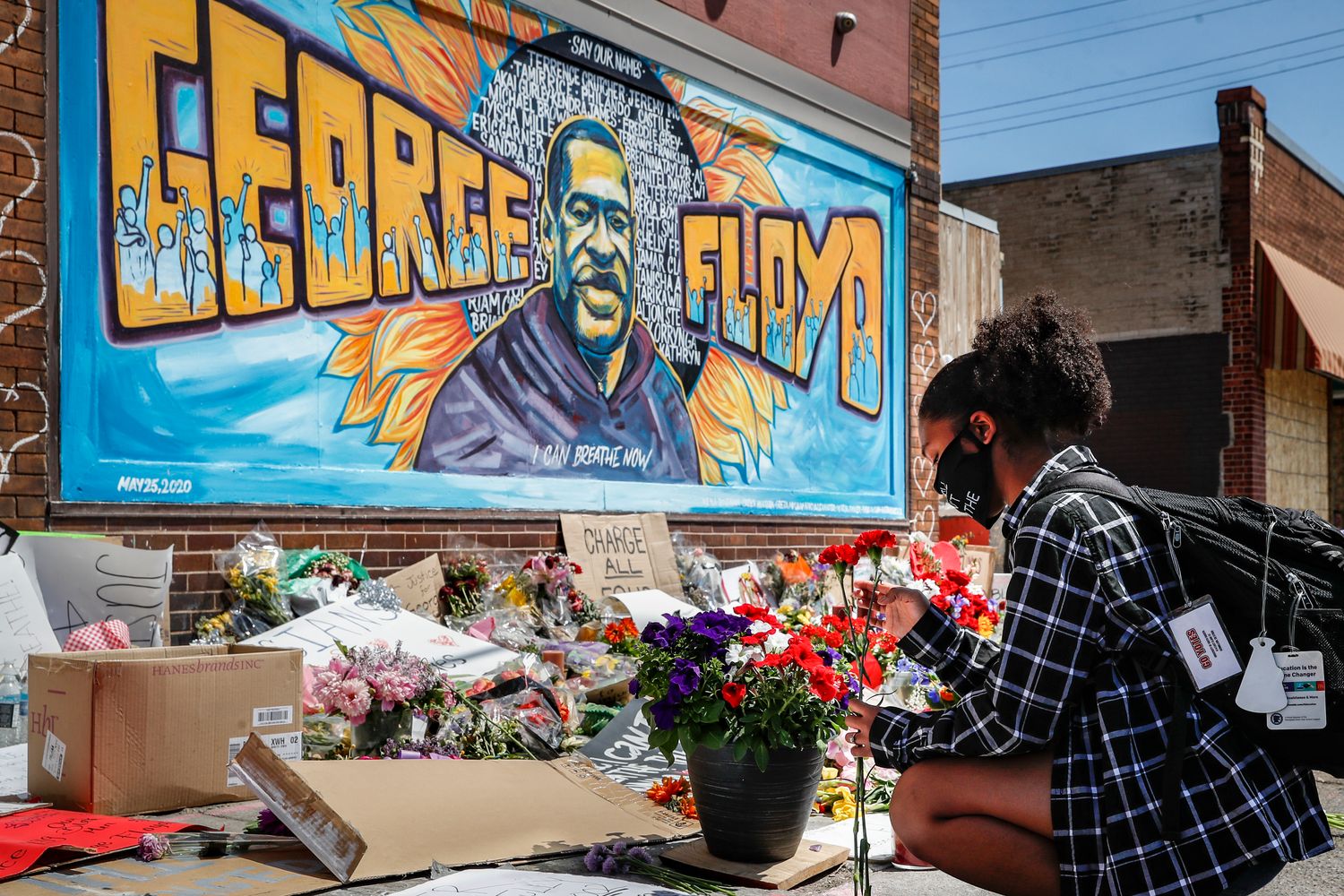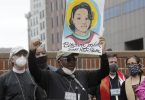
“When it comes to such a dramatic, almost on-the-spot change, I don’t think we’ve ever seen anything of this level,” said Scott Finnie, executive director of Eastern Washington University’s race and cultural studies program. “After the Eric Garners, the Trayvon Martins, that have left kind of an impression — this thing left a seismic quake and a crack, not just an impression.”
The protests, replicated across the globe, have thrust race to the forefront of the 2020 presidential race, even in the middle of a deadly pandemic. President Donald Trump and his Democratic challenger, former Vice President Joe Biden, are grappling with the whiplash of changing views on the issues in the wake of Floyd’s killing.
In a CNN/SSRS poll released Monday, 42 percent of voters said race relations would be an “extremely important” factor in their vote for president, a higher percentage than the share of voters who said the same of the economy (40 percent), health care (39 percent) and the coronavirus outbreak (31 percent).
The survey shows a significant disparity in the views and experiences of white and black Americans, with a much higher share of African Americans saying racism is a big problem and the justice system favors white people, as well as a higher percentage of black people saying their race has been a factor in whether they feel safe or were denied housing or jobs.
But the 60 percent of white people who said racism is a big problem is nearly three times as high as a November 2011 CNN/Kaiser Family Foundation poll, when only 21 percent of white Americans believed it was a big problem. It’s also 11 points higher than it was in 2015, when 49 percent said it was a big problem.
In a Washington Post/Schar School (George Mason University) poll released Tuesday, 69 percent of respondents — including 68 percent of whites — said Floyd’s killing was part of a broader problem within law enforcement. That represents a large increase from a December 2014 ABC News/Washington Post poll, when only 43 percent of all respondents and 35 percent of whites said then-recent police killings of unarmed black men were signs of a broader problem.
In a phone interview, Finnie, the Eastern Washington University professor, said the video recorded by a bystander of now-former police officer Derek Chauvin pinning down Floyd with his knee for nearly nine minutes has had a profound impact spreading across traditional and social media.
“That picture of one-sided, kind of a heavy-handed and even a racist kind of subjugation was captured and will never leave the memory of too many young people who have now said it’s time,” he said.
Chauvin was charged with second-degree murder, and the three officers who were on the scene but failed to intervene were charged with aiding and abetting second-degree murder.
Polls also suggest broader changes in public opinion on racial issues. Sixty-three percent of whites surveyed in the CNN/SSRS poll said the nation’s criminal justice system favors white people over black people, a 15-point increase from 2016. And the percentage of white Americans who say both races are treated equally has dropped from 40 percent in 2016 to 29 percent.
A higher percentage of white Americans (88 percent) said the peaceful protests across the country are justified. Only 80 percent of black Americans said the same.
“Eighty-four percent of Americans don’t agree on anything, but they agree these peaceful protests are justified,” CNN’s political director David Chalian said on air Monday afternoon. “That’s about 20 points higher than we’ve seen when we asked that question just a few years ago.“
The changes in polling over the past two weeks come as agreement between black and white Americans on the state of race relations has declined over the past 20 years. According to Gallup, 70 percent of black Americans said race relations were “very good” or “somewhat good” in 2001. That percentage dropped to 40 percent in 2018. During that span, however, white Americans’ views of race relations have fallen 8 only percentage points.
Since 2001, a majority of white Americans have said they believed race relations would eventually be worked out. But a majority of black Americans have said since 1993 that race relations would always be a problem for the U.S., with exceptions in 2008 and 2013, when 49 percent of black Americans said it would always be a problem.
The percentage of African Americans who believed race relations were good neared its peak during Obama’s second term in 2013 but had fallen 17 points, to 49 percent, by the last summer of his presidency. It has continued to fall through Trump’s administration, though there is no Gallup data for the past year and a half.
In a Monmouth University poll released last week, 45 percent of white registered voters and 75 percent of black registered voters said race relations have gotten worse under Trump.
The changes in attitudes in recent weeks also extend to the “Black Lives Matter” movement, which has generated backlash among some whites and police since it began last decade.
National tracking data from the polling and data analytics firm Civiqs show that it took more than three years for white voters’ support of the Black Lives Matter movement to inch up 8 percentage points since it started tracking the data in April 2017. But in the two weeks since Floyd’s death, white voters’ support for the movement has jumped another 8 percentage points.
Source: politico.com
See more here: news365.stream





